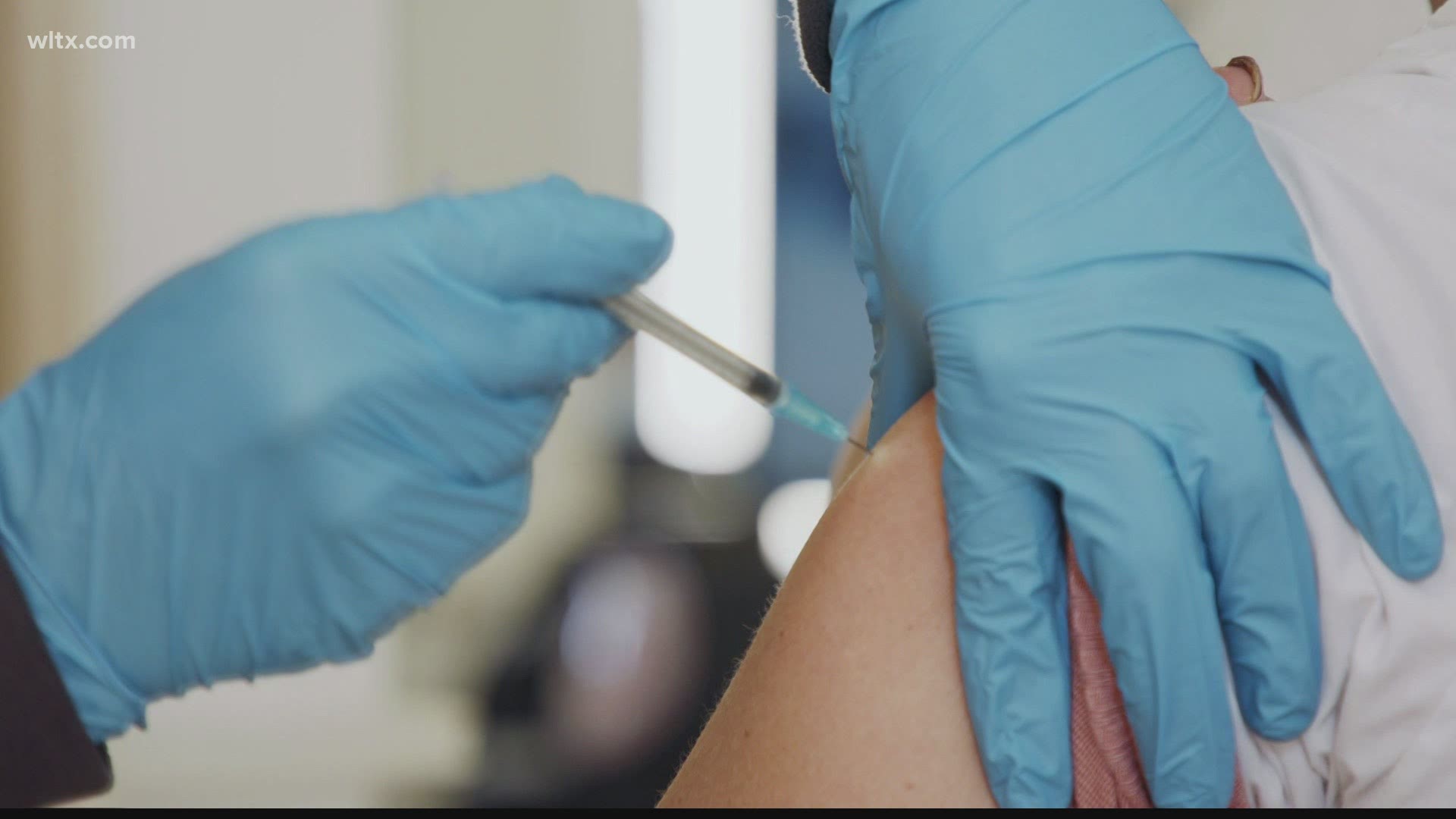COLUMBIA, S.C. — Just because you get the COVID-19 vaccine, you shouldn't throw away the coronavirus safety guidelines.
That's according to doctors who say it's simply too soon to relax.
News 19 spoke with two South Carolina doctors to get their advice on what you should do after you get vaccinated.
Our experts for this report are Dr. Danielle Scheurer, the Chief Qualify Officer at MUSC, and Dr. Helmut Albrecht, Director of Infectious Disease Research and Policy for Prisma Health and USC.
Both say it's important to remain vigilant, especially after you get your first dose of the vaccine.
"In between the first and second dose, the efficacy of the vaccine is only about 50%," explained Scheurer. "So we have even seen within our team members a sizable number of people who get COVID between the first and second dose."
Contracting COVID-19 in between doses can certainly happen if you're not careful.
"Please don't get COVID in the days around you getting the vaccine because then your immune system is dealing with two viruses," said Albrecht. "The few patients I've seen with this are really not doing well. This includes very young people who celebrated their vaccine by going out."
Washing your hands, wearing a mask, avoiding crowds and avoiding poorly ventilated areas will still be necessary.
Doctors say if you're still out and about in the community, it's also important to still get tested regularly.
"The way the vaccine works is it primes your immune system to kick into gear really quickly whenever you do encounter COVID, but it doesn't actually prevent you from transmitting COVID to others," said Scheurer.
The vaccine is 95% effective, doctors say, with full protection from the virus starting a couple of weeks after your second dose.
"If you're at a wedding or at a choir service where most people are not vaccinating, do not distance, create a lot of droplets by singing or laughing, even 95% may not be good enough," said Albrecht. "If you are immunized but are at a very high-risk if you get it, the residual 5% maybe too high-risk for you - at least in certain settings."
Dr. Scheurer says both Pfizer and Moderna are looking into the possibility of booster shots. If those are needed, she says we may end up in a situation similar to the flu vaccine.
"Not only does the flu vaccine change every year based on the circulating subtypes of influenza, there are several different components to that vaccine," she explained. "The good news is that this is not completely foreign territory for us."
She says evidence suggests the vaccines can last several months, but just how long exactly remains to be seen.
Doctors are also keeping a close eye on the different, more contagious variants of the coronavirus - saying we don't know just yet if they will render either of our vaccines ineffective.
It's just another reason, experts say, to keep practicing safety measures.
"Until we know, err on the side of caution," said Albrecht.

